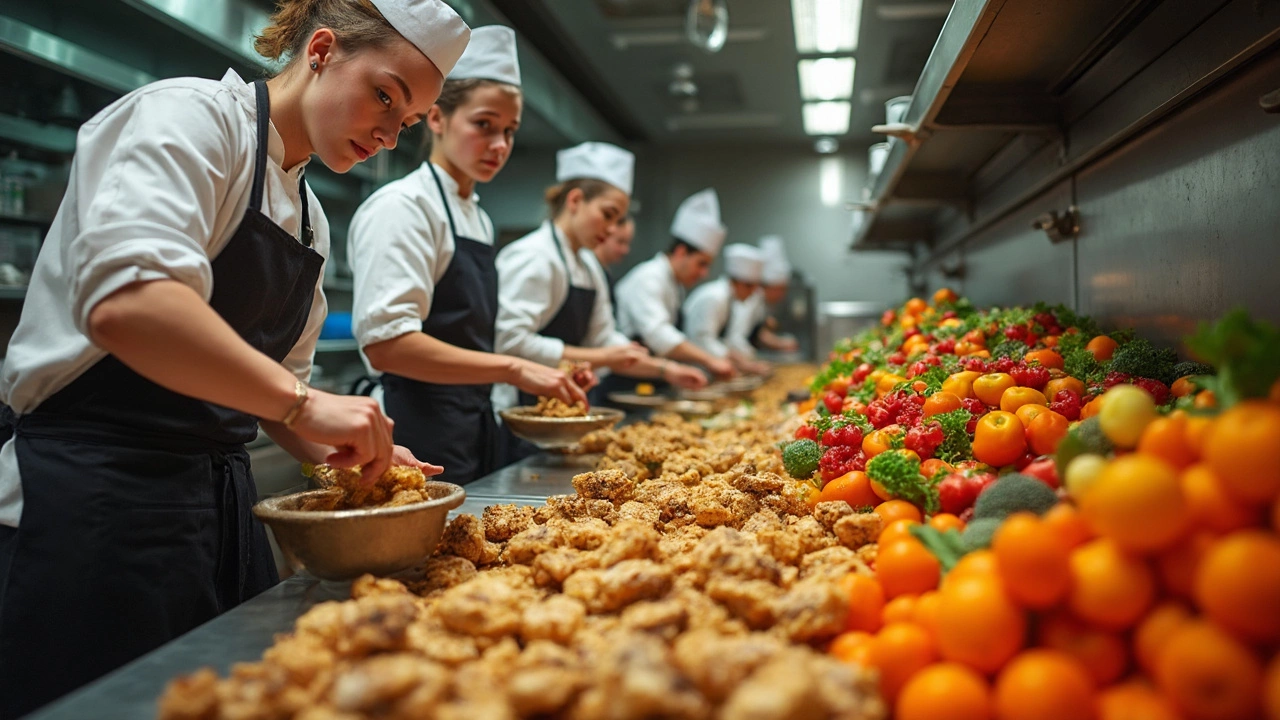Leftover Food Tips for Your Lancashire Lodge Stay
Got extra soup, veggies, or a half‑cooked roast after a day of exploring? Throwing it away feels wasteful, and it can add up on a weekend getaway. The good news is you don’t need a fancy chef’s kitchen to keep leftovers safe and tasty. Below are down‑to‑earth tips that work in any cottage, lodge, or holiday home.
Plan Ahead, Pack Smart
Before you even leave home, think about the meals you’ll make. Packing pre‑portioned ingredients helps you use exactly what you need. Bring reusable containers – glasses, silicone bags, or sturdy tupperware – instead of relying on disposable plastic. They keep food fresh and save space in the fridge.
If you know you’ll have a big dinner on Saturday, batch‑cook a side dish that can double as lunch on Sunday. For example, a big pot of stew can be portioned into two meals. Write a quick note on the fridge door with a plan: "Stew for dinner, leftovers for lunch." That tiny habit stops you from forgetting about the food and ending up with a fridge full of mystery containers.
Smart Ways to Store and Re‑use
When you bring leftovers back to the lodge, cool them quickly. Transfer hot food into a shallow container – it cools faster and reduces the risk of bacterial growth. Store the container on the top shelf of the fridge where the temperature is most stable.
Turn leftovers into new meals. A few days old roast can become a sandwich, a wrap, or a hearty salad. Leftover veggies? Toss them into an omelet or a quick stir‑fry. Even stale bread can be rescued as croutons for soup. The trick is to add a fresh element – a splash of lemon, a handful of herbs, or a drizzle of sauce – to give the dish a new vibe.
If you’re staying for several nights, label each container with the date. A simple piece of masking tape and a pen are enough. This way you won’t mistake a three‑day‑old salad for a fresh one, and you’ll know exactly when to finish it.
Don’t forget about the freezer. Most cottage freezers can hold a small batch of leftovers. Portion the food into freezer‑safe bags, squeeze out the air, and freeze it flat. When you’re ready to eat, just thaw in the fridge overnight and reheat. It’s a lifesaver for a busy morning when you’d rather not cook from scratch.
Finally, be mindful of portion sizes during meals. Serve a modest plate, and go back for seconds only if you’re still hungry. Smaller servings mean fewer leftovers and less waste, plus you avoid the temptation to over‑eat.
Putting these habits into practice makes your stay more sustainable, cheaper, and tastier. You’ll leave the lodge with a lighter carbon footprint and a fuller belly – all without stress.

Leftover Food in All-Inclusive Hotels: Where Does It Go?
Ever wondered what happens to the heaps of leftover food in all-inclusive hotels? This read is about the journey of excess food, from hotel kitchens to sustainable solutions. Discover simple yet impactful measures these establishments take to tackle food wastage. Gain practical and insightful information on this pressing issue.
Continue Reading